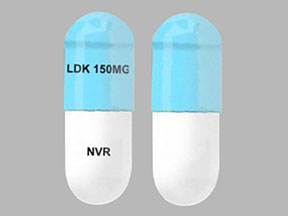Ceritinib Interactions
There are 737 drugs known to interact with ceritinib, along with 8 disease interactions, and 2 alcohol/food interactions. Of the total drug interactions, 404 are major, 318 are moderate, and 15 are minor.
- View all 737 medications that may interact with ceritinib
- View ceritinib alcohol/food interactions (2)
- View ceritinib disease interactions (8)
Most frequently checked interactions
View interaction reports for ceritinib and the medicines listed below.
- Activated Charcoal (charcoal)
- Aspirin Low Strength (aspirin)
- Ativan (lorazepam)
- Co-trimoxazole (sulfamethoxazole / trimethoprim)
- Coenzyme Q10 (ubiquinone)
- Copper (copper gluconate)
- Dextrose (glucose)
- Diltiazem Hydrochloride SR (diltiazem)
- Ecoza (econazole topical)
- Ethyl Alcohol (ethanol)
- Farxiga (dapagliflozin)
- Glycerol (glycerin)
- Heparin Sodium (heparin)
- Humalog KwikPen (insulin lispro)
- Iodides (sodium iodide)
- Jardiance (empagliflozin)
- Keppra (levetiracetam)
- L-Arginine (arginine)
- L-Carnitine (levocarnitine)
- L-Cysteine (cysteine)
- Lantus SoloStar (insulin glargine)
- Lithium Carbonate ER (lithium)
- Metamucil Orange Smooth Texture Sugar Free (psyllium)
- Metoprolol Succinate ER (metoprolol)
- Metoprolol Tartrate (metoprolol)
- Nitrostat (nitroglycerin)
- Paracetamol (acetaminophen)
- Paracetamol Zydus (acetaminophen)
- Quercetin (bioflavonoids)
- Vitamin B12 (cyanocobalamin)
Ceritinib alcohol/food interactions
There are 2 alcohol/food interactions with ceritinib.
Ceritinib disease interactions
There are 8 disease interactions with ceritinib which include:
- QT prolongation
- bradycardia
- GI complications
- hepatic impairment
- hyperglycemia
- pancreatitis
- renal impairment
- lung toxicity
More about ceritinib
- ceritinib consumer information
- Compare alternatives
- Reviews (1)
- Side effects
- Dosage information
- During pregnancy
- Drug class: multikinase inhibitors
- Breastfeeding
- En español
Related treatment guides
Drug Interaction Classification
| Highly clinically significant. Avoid combinations; the risk of the interaction outweighs the benefit. | |
| Moderately clinically significant. Usually avoid combinations; use it only under special circumstances. | |
| Minimally clinically significant. Minimize risk; assess risk and consider an alternative drug, take steps to circumvent the interaction risk and/or institute a monitoring plan. | |
| No interaction information available. |
See also:
Further information
Always consult your healthcare provider to ensure the information displayed on this page applies to your personal circumstances.


